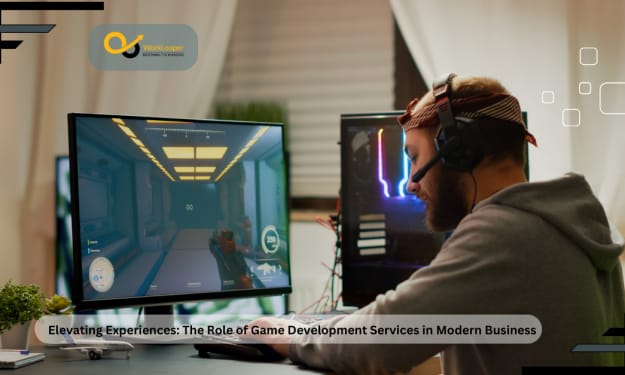Simply solving sudoku
Is it art, is it philosophy? No, it's just a game

I began writing this little book on sudoku solutions shortly after the death and funeral of my dear mother.
Before she became ill, Mum liked to do puzzles, including jigsaw puzzles and the word searches and simple crossword-type puzzles to be found in that wonderful magazine Take a Break. She hated sudoku though, as many people do, I suspect because they think that the appearance of the nine Arabic numerals (‘1’ to ‘9’) means that sudoku represents a problem in arithmetic, which it most certainly is not.
The use of the numerals 1 to 9 is a convenience only. There is no arithmetic manipulation involved in a standard sudoku solution (though there arguably is in the 'killer' variation). All manner of other symbols would be equally valid in their place. One could, for instance, use nine of the twelve zodiac symbols, nine of the letters of the alphabet (Greek, Roman, modern or any other), nine shades of colour, nine shapes, or anything else that could provide nine unique and easily recognised symbols. None would be as easily recognisable, however, as the nine numerals representing the numbers one to nine. This is the beginning of the beauty and art of sudoku. That the numbers one to nine make a nice square and that nine such squares, in a pattern three by three, make nine times nine further squares. Like life, sudoku is about patterns, not about numbers.
As I think about and plan this little book, I am also thinking about a potentially larger, longer (in writing) and (I hope) more prosaic book with a working title ‘on love and death.’ This work in the making is, not surprisingly, even more closely connected with the event of my mother’s passing. The two potential works are themselves closely connected but the problem with a book about love and death is that there is too much to put in it to ever be able to complete it. Sudoku, on the other hand, is limited to three by three, three by three, nine by nine, 81 spaces to fill and complete in lines up, across, and self-contained sectors. Rules are simple and learnt quickly, and apply without fail. You start the problem, you end the problem, perhaps in the same hour. Unlike life, whose rules are complex and a lifetime of trying to learn them is bound to fail.
The greatest philosophers, mathematicians, wise women, holy men, the most magnificent ideas, the greatest optimism, fortitude, courage, grace, gentleness, humility, saintliness, will not help one iota in discovering the true meaning of life. Life is a puzzle you can never solve. Sudoku is a puzzle you can always solve and, if you learn its lessons, you can begin, with all humility, to approach the problem of life, at least with some optimism of making a little headway by the time you are too old to care.
I sometimes wonder if the amount of time I spend solving sudoku puzzles is time wasted. I think not for, not only does this pastime provide a diversion from the stresses and strains of everyday life, it also helps to exercise my problematic mental resources. More importantly, it helps to provide me with a philosophical insight – yes, really! Tackling the philosophies of the the great philosophers is hard work and offers no solutions to life or anything else that I have ever found. Tackling the philosophical basis of sudoku provides an opportunity to actually solve philosophical problems for someone who, like me, is simply minded.
To me, sudoku is not a problem in numbers but a problem in patterns. When I look at an unsolved sudoku problem, I look at the patterns and think of the possibilities, which is something like how I look at life. Solving sudoku problems helps me solve life's problems. It displaces the everyday problems that my mind is constantly filled with, with the simple problem that is closely followed by a solution. One pattern leading to another. In some ways, it could be thought of on a par with the practice of mindfulness. I intend giving such practice a go at some point. Perhaps I should ask the mindfulness practitioners if they would agree with the comparison between sudoku and mindfulness.
Is all this too deep for a little game? Probably it is. Let's get on, then, with the artful solution to the sudoku problem we face. None of the suggested methods put forward in this little book are likely to be original. You may use some of them yourself, already, although you might describe them differently. It is in the nature of simple problems, like a sudoku puzzle, that there will only be a limited number of possible ways of solving them.
On this basis, it is quite likely that you will find similar solutions offered by other authors and pundits. I claim no proprietary rights to the solutions offered. Ideas are no man’s property. If you find any of these methods useful, please feel free to use them freely. None of them were taken from other authors, though. All were developed by me in my goal to solve my daily sudoku puzzle. It is inevitable that some parts of my solutions will be similar to others'. This is unintentional but unavoidable. None were copied. You will no doubt adapt and develop these methods to your own ends. If you would like to share your findings with me, all well and good. I would be grateful for any further insight. If you keep your methods to yourself, good luck to you too. Why not benefit from your own hard work? We are talking about a sudoku game here, not a solution to the ills of the world.
If you wish to copy the odd group of words or any single diagram, please feel free to do so but please credit them. If you have any reason to copy larger parts of the modest results of my efforts, please ask first. If you write your own little book of sudoku solutions, artful or otherwise, I won't complain if some of these methods appear it it. You have my blessing to add to the understanding of the meaning of life... well, at least the meaning of sudoku.
Sources of sudoku
If you like doing sudoku puzzles, there is no shortage of supplies, whether you like to do the daily sudoku in your favourite newspaper, prefer to buy a jumbo sudoku puzzle book, or download some of the free resources online. Some sources provide more challenging sudoku puzzles than others. The Times (UK) newspaper generally provides some of the more challenging sudokus, which it refers to as ‘fiendish’ and, at the upper end, ‘super fiendish.’
Don’t be put off by these descriptions. This method will gobble up the hardest that any publisher has to offer. To test this theory while writing this little book, I picked up the day’s edition of The Times and used the techniques outlined here to see if I could test them in practice. I got no further than the double alternate method (which you will learn about later) before I was able to solve that day’s puzzle.
Next, I tried downloading some puzzles from the free online edition of The Guardian. This proved even easier. If you want to test the theory out for yourself, try searching and solving ‘Guardian Sudoku 3801 hard,’ for instance, which is the one that I did, like The Times, using only the methods up to 'double alternate'. These techniques gobbled up the The Guardian and triumphed over The Times. These were the hardest that these respected publishers had to offer.
To be fair, I have also picked up some sudoku puzzles from The Times and The Guardian that I have found challenging and that have taken some time to solve. But I have yet to find an unsolvable sudoku from any source. Time, patience, resilience, and a willingness to explore the philosophical problems, and to visualise the patterns produce by a sudoku problem, are the path to success.
I’m not saying that this system will solve any puzzle quickly and without any thought - where would the fun be in that? It will, however, provide you with a basis to help solve even the most difficult sudoku puzzles given enough time and willingness to try out different alternatives until you are able to find the key and unlock the secret of the simple art of solving sudoku. You must, of course, be willing to deploy your own intellectual resources. This system cannot do the thinking for you.
Have fun! And enjoy the (not very) secret and simple art of solving sudoku.
If you would like to read a copy of The Simple Art of Solving Sudoku, it is available from Park Langley Editions in Kindle and paperback.
Click here to order your copy from Amazon.
Above extract from the introduction to The Simple Art of Solving Sudoku © Langley Park Editions 2017.
About the Creator
Raymond G. Taylor
Author based in Kent, England. A writer of fictional short stories in a wide range of genres, he has been a non-fiction writer since the 1980s. Non-fiction subjects include art, history, technology, business, law, and the human condition.






Comments
There are no comments for this story
Be the first to respond and start the conversation.